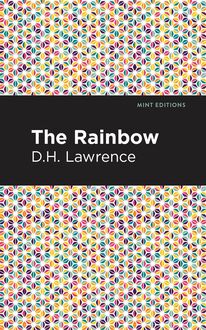-
 Univers
Univers
-
 Ebooks
Ebooks
-
 Livres audio
Livres audio
-
 Presse
Presse
-
 Podcasts
Podcasts
-
 BD
BD
-
 Documents
Documents
-
- Cours
- Révisions
- Ressources pédagogiques
- Sciences de l’éducation
- Manuels scolaires
- Langues
- Travaux de classe
- Annales de BEP
- Etudes supérieures
- Maternelle et primaire
- Fiches de lecture
- Orientation scolaire
- Méthodologie
- Corrigés de devoir
- Annales d’examens et concours
- Annales du bac
- Annales du brevet
- Rapports de stage
La lecture à portée de main
Vous pourrez modifier la taille du texte de cet ouvrage
Découvre YouScribe en t'inscrivant gratuitement
Je m'inscrisDécouvre YouScribe en t'inscrivant gratuitement
Je m'inscrisEn savoir plus
Vous pourrez modifier la taille du texte de cet ouvrage
En savoir plus

Description
The Tale or Mr. Peter Brown is a story by Vita Sackville-West. While she is most widely recognized as the lover of English novelist Virginia Woolf, Sackville-West was a popular and gifted poet, playwright, and novelist in her own right. A prominent lesbian and bohemian figure, Sackville-West was also the daughter of an English Baron, granting her a unique and often divided perspective on life in the twentieth century. The Tale of Mr. Peter Brown is a tale of mystery, romance, and loneliness. “[H]e let his gaze dwell on me as he passed; let it dwell on me quite perceptibly, quite definitely, with an air of curious speculation, a hesitation, almost an appeal, and I thought he was about to speak, but instead of that he crushed his hat, an old black wideawake, down over his strange white hair, and hurrying resolutely on towards the swing-doors of the restaurant, he passed out and was lost in the London night.” Mr. Peter Brown is a man with secrets. The next time he encounters the narrator, he shares the story of his life. Formerly homeless, he was taken in by his friends, a married couple who were generous enough to give him food and shelter. As he spends more and more time with them, he begins to observe their unhappiness, how the wife not only fears her husband, but seems to disdain him. Soon, he begins an illicit affair, making love to his friend while her husband is away on business. Tragic and sinister, The Tale of Mr. Peter Brown is a story of human desire. With a beautifully designed cover and professionally typeset manuscript, this edition of Vita Sackville-West’s The Tale of Mr. Peter Brown is a classic of English literature reimagined for modern readers.
Sujets
Informations
| Publié par | Mint Editions |
| Date de parution | 28 septembre 2021 |
| Nombre de lectures | 0 |
| EAN13 | 9781513212050 |
| Langue | English |
Informations légales : prix de location à la page 0,0250€. Cette information est donnée uniquement à titre indicatif conformément à la législation en vigueur.
Extrait
The Tale of Mr. Peter Brown
V. Sackville-West
The Tale of Mr. Peter Brown was first published in 1900.
This edition published by Mint Editions 2021.
ISBN 9781513212159 | E-ISBN 9781513212050
Published by Mint Editions®
minteditionbooks .com
Publishing Director: Jennifer Newens
Design & Production: Rachel Lopez Metzger
Project Manager: Micaela Clark
Typesetting: Westchester Publishing Services
C ONTENTS Begin Reading
T he first thing which attracted my attention to the man was the shock of white hair above the lean young face. But for this, I should not have looked twice at him: long, spare, and stooping, a shabby figure, he crouched over a cup of coffee in a corner of the dingy restaurant, at fretful enmity with the world; typical, I should have said, of the furtive London nondescript. But that white hair startled me; it gleamed out, unnaturally cleanly in those not overclean surroundings, and although I had propped my book up against the water-bottle at my own table, where I sat over my solitary dinner, I found my eyes straying from the printed page to the human face which gave the promise of greater interest. Before very long he became conscious of my glances, and returned them when he thought I was not observing him. Inevitably, however, the moment came when our eyes met. We both looked away as though taken in fault, but when, having finished his coffee and laid out the coppers in payment on his table, he rose to make his way out between the tables, he let his gaze dwell on me as he passed; let it dwell on me quite perceptibly, quite definitely, with an air of curious speculation, a hesitation, almost an appeal, and I thought he was about to speak, but instead of that he crushed his hat, an old black wideawake, down over his strange white hair, and hurrying resolutely on towards the swing-doors of the restaurant, he passed out and was lost in the London night.
I was uncomfortably haunted, after that evening, by a sense of guilt. I was quite certain, with unjustifiable certainty born of instinct, that the man had wanted to speak to me, and that the smallest response on my part would have encouraged him to do so. Why hadn’t I given the response? A smile would have sufficed; a smile wasn’t much to demand by one human being of another. I thought it very pitiable that the conventions of our social system should persuade one to withhold so small a thing from a fellow-creature who, perhaps, stood in need of it. That smile, which I might have given, but had withheld, became for me a sort of symbol. I grew superstitious about it; built up around it all kinds of extravagant ideas; pictured to myself the splash of a body into the river; and then, recovering my sense of proportion, told myself that one really couldn’t go about London smiling at people. Yet I didn’t get the man’s face out of my head. It was not only the white hair that had made an impression on my mind, but the unhappy eyes, the timidly beseeching look. The man was lonely, I was quite sure of that; utterly lonely. And I had refused a smile.
I don’t know whether to say with more pride than shame, or more shame than pride, that I went back to the restaurant a week later. I had been kept late at my work, and there were few diners; but he was there, sitting at the same table, hunched up as before over a cup of coffee. Did the man live on coffee? He was thin enough, in all conscience, rather like a long, sallow bird, with a snowy crest. And he had no occupation, no book to read; nothing better to do than to bend his long curves over the little table and to stab at the sugar in his coffee with his spoon. He glanced up when I came in, casually, at the small stir I made; then by his suddenly startled look I saw that he had recognised me. I didn’t nod to him, but I returned his look so steadily that it amounted to a greeting. You know those moments, when understanding flickers between people? Well, that was one of those moments.
I sat down at a table, placing myself so that I should face him, and very ostentatiously I took a newspaper out of my pocket, unfolded it, and began to read. But through my reading I was aware of him, and I knew that he was aware of me. At the same time I couldn’t help being touched by what I knew I should read in his face: the same hostility, towards the world at large, and towards myself the same appeal, half fearful, half beseeching. It was as though he said, aloud and distinctly, “Let me talk! For God’s sake let me talk it out!” And this time I was determined that he should; yes, I was quite grim over my determination. I was going to get at the secret that lay behind those hunted eyes.
I was in a queer mood myself; rather a cruel mood, although the starting-point of my intention had been kind. I knew that my mood had something of cruelty in it, because I discovered that I was purposely dawdling over my dinner, in order to keep the man longer than necessary on the rack. Queer, the complexities one unearths in oneself. But probably if I had been an ordinary straightforward kind of fellow, I should never have had the sensibility to recognise in the first instance that the man wanted to talk to me. It’s the reverse of the medal, I suppose.
He had finished his coffee, of course, long before I had finished my dinner; he had squeezed the last drop out of the little coffee-pot, and I wondered with amusement whether he would have the moral courage to remain where he was now that his ostensible pretext was gone and that the waiter was beginning to loiter round his table as a hint that he ought to go. Poor devil, I could see that he was growing uneasy; he shuffled his feet, and the glances he threw at me became yet more furtive and reproachful. Still I gave no sign; I don’t know what spirit of sarcasm and teasing possessed me. He stood it for sometime, then he shoved back his chair, reached for his hat, and stood up. It was a sort of defiance that he was throwing at me, an ultimatum that I should either end my cat-and-mouse game, or let him go. As he was about to pass my table on the way out, I spoke to him.
“Care for a look at the evening paper?”
Absurd—isn’t it?—that one should have to cloak one’s interest in a stranger’s soul under such a convention as the offer of a paper. Why couldn’t I have said to him straight out, “Look here, what’s the matter with you?” But our affairs are not so conducted. He accepted my offer, and stood awkwardly reading the City News , which I thought a sure indication of his confusion, as by no stretch of fancy could I imagine him the possessor of stocks or shares. “Sit down,” I said, “while you read.”
He sat down, with a mumble of thanks, laying his old black wideawake beside him on my table. I think he was glad of the paper, for it gave him something to do with his hands and his eyes. I observed him, and he must have known I was observing him. Underneath the thick, snow-white hair the face was young, although so sunken and so sallow, the face of a man of perhaps twenty-seven or eight, sensitive, not at all the face of a criminal escaping from justice, in spite of that hunted look which had been so vividly present to me during the past week. An artist, I thought; perhaps a writer; a romantic face; not blatantly romantic; no, but after you had delved into the eyes and traced the quiver of the mouth you discovered the certain signs of the romantic idealist.
“I saw you here last week,” he muttered suddenly.
The little restaurant was by now almost empty; many of the lights had been turned down, and at most of the tables the chairs had been tipped forward.
-
 Univers
Univers
-
 Ebooks
Ebooks
-
 Livres audio
Livres audio
-
 Presse
Presse
-
 Podcasts
Podcasts
-
 BD
BD
-
 Documents
Documents
-
Jeunesse
-
Littérature
-
Ressources professionnelles
-
Santé et bien-être
-
Savoirs
-
Education
-
Loisirs et hobbies
-
Art, musique et cinéma
-
Actualité et débat de société
-
Jeunesse
-
Littérature
-
Ressources professionnelles
-
Santé et bien-être
-
Savoirs
-
Education
-
Loisirs et hobbies
-
Art, musique et cinéma
-
Actualité et débat de société
-
Actualités
-
Lifestyle
-
Presse jeunesse
-
Presse professionnelle
-
Pratique
-
Presse sportive
-
Presse internationale
-
Culture & Médias
-
Action et Aventures
-
Science-fiction et Fantasy
-
Société
-
Jeunesse
-
Littérature
-
Ressources professionnelles
-
Santé et bien-être
-
Savoirs
-
Education
-
Loisirs et hobbies
-
Art, musique et cinéma
-
Actualité et débat de société
- Cours
- Révisions
- Ressources pédagogiques
- Sciences de l’éducation
- Manuels scolaires
- Langues
- Travaux de classe
- Annales de BEP
- Etudes supérieures
- Maternelle et primaire
- Fiches de lecture
- Orientation scolaire
- Méthodologie
- Corrigés de devoir
- Annales d’examens et concours
- Annales du bac
- Annales du brevet
- Rapports de stage













